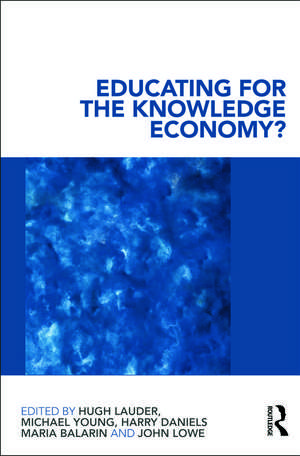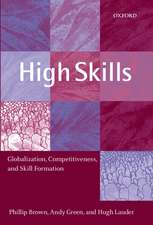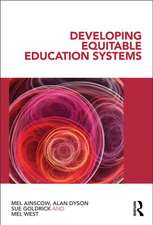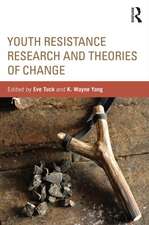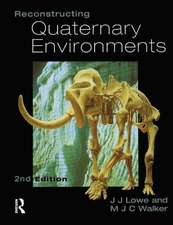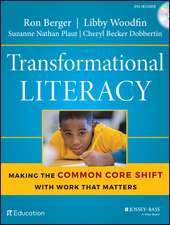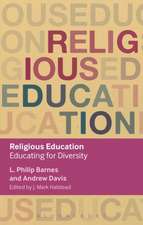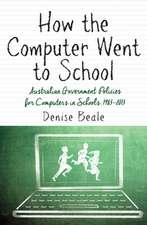Educating for the Knowledge Economy?: Critical Perspectives
Editat de Hugh Lauder, Michael Young, Harry Daniels, Maria Balarin, John Loween Limba Engleză Paperback – 6 ian 2012
The current economic crisis is provoking a reappraisal of both economic and educational policy. Policy makers and educationists across the world see education as central to economic competitiveness. However, this book asks fundamental questions about the relationship between the economy and education since, in contrast to policy makers’ rhetoric, the relationship between the two sectors is not straightforward. An unorthodox account of the knowledge economy and economic globalisation suggests that autonomy in the workplace and permission to think will be only given to the elite. In this view many aspirant well-educated middle-class young workers are doomed to disappointment.
In this book, leading scholars from the US, the UK, Australia and New Zealand discuss these issues and interrogate the assumptions and links between the different elements of education and how they might relate to the economy. Even if we assume that the official view of the knowledge economy is correct, are we educating young people to be autonomous, creative thinkers? Are current policies relating to knowledge, learning and assessment consistent with the kinds of workers and skills required for the knowledge economy?
Educating for the Knowledge Economy? will appeal to academics, policy makers, teachers and students interested in the central role of education in the knowledge economy.
| Toate formatele și edițiile | Preț | Express |
|---|---|---|
| Paperback (1) | 318.12 lei 6-8 săpt. | |
| Taylor & Francis – 6 ian 2012 | 318.12 lei 6-8 săpt. | |
| Hardback (1) | 879.10 lei 6-8 săpt. | |
| Taylor & Francis – 6 ian 2012 | 879.10 lei 6-8 săpt. |
Preț: 318.12 lei
Preț vechi: 363.78 lei
-13% Nou
Puncte Express: 477
Preț estimativ în valută:
60.89€ • 63.33$ • 51.02£
60.89€ • 63.33$ • 51.02£
Carte tipărită la comandă
Livrare economică 13-27 martie
Preluare comenzi: 021 569.72.76
Specificații
ISBN-13: 9780415615075
ISBN-10: 0415615070
Pagini: 264
Ilustrații: 8 black & white illustrations, 7 black & white tables
Dimensiuni: 156 x 234 x 18 mm
Greutate: 0.42 kg
Ediția:New.
Editura: Taylor & Francis
Colecția Routledge
Locul publicării:Oxford, United Kingdom
ISBN-10: 0415615070
Pagini: 264
Ilustrații: 8 black & white illustrations, 7 black & white tables
Dimensiuni: 156 x 234 x 18 mm
Greutate: 0.42 kg
Ediția:New.
Editura: Taylor & Francis
Colecția Routledge
Locul publicării:Oxford, United Kingdom
Public țintă
PostgraduateCuprins
Introduction: 1. Educating for The Knowledge Economy? Critical Perspectives Section I The ‘knowledge economy’ and Education 2. Globalisation, Crisis and the Political Economy of the International Monetary (Dis)Order 3. The Global Auction, Skill Bias Theory and Graduate Incomes: Reflections on Methodology 4. ‘Openness’ and the Global Knowledge Commons: An Emerging Mode of Social Production for Education and Science 5. Learning and Contradiction Across Boundaries Section II: Knowledge and the Economy 6. The Educational Revolution and the Transformation of Work 7. Forms of Knowledge and Curriculum Coherence 8. Education, Globalisation and the ‘voice of knowledge’ 9. The problem with Competency Based Training (and why constructivism makes things worse) Section III: Pedagogy, Assessment, the Demands of the Knowledge Economy and Social Justice? 10. Numbers in Grids of Intelligibility: Making Sense of How Educational Truth is Told 11. Assessing Educational Reform: Accountability, standards and the utility of qualifications 12. School and the Pupils’ Work 13. Social Class and School Knowledge: revisiting the sociology and politics of the curriculum in the 21st century
Recenzii
"My final judgment? The book is well timed and a fascinating read that should appeal to those who have a penchant to read perspectives that challenge dominant views. It should be a useful source to policy makers seeking to embrace critical perspectives about issues that are often taken for granted."- Kenneth Dipholo, International Journal of Lifelong Education
Descriere
Leading scholars from the US, the UK, Australia and New Zealand question whether current policies relating to knowledge, learning and assessment are consistent with the kinds of workers and skills required for the knowledge economy?
